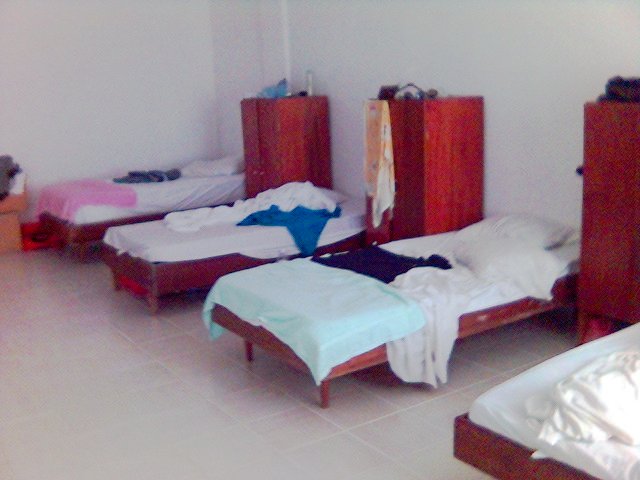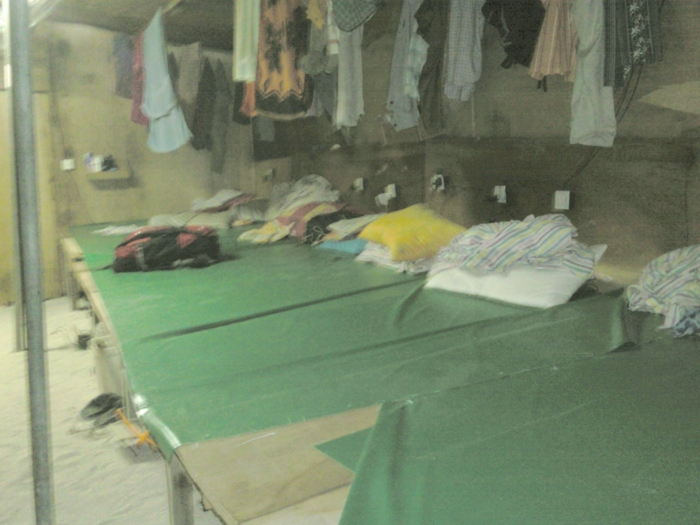
Maldives Association for Tourism Industry has an interesting Operating Guideline: It reads “The member is right, even when s/he is wrong!”. This is an interesting operating guideline which pretty well sums up MATI. The association also has a 5 point agenda the first one of which is resort lease period extension.. To all extents MATI seems to have achieved the first point in the agenda with the government agreeing to extend the existing lease period of the resorts to 50 years if the resort agrees to pay a sum of money. Currently all resorts has individual land lease agreements with government which were drawn up as was when needed, hence the conditions were favourable for the first batch of resorts and gradually got tougher for the latest batch of resorts.
The goods and services tax bill (3.5%) was heavily fought over in the parliament, by the opposition and the government and all sides made concessions to others. That much was apparent from the media. But what was not apparent was the involvement of MATI the resort owners club which cut a deal with the government to extend the existing resort leases. The government has agreed to the cartel’s demand upon the resorts paying a further 100000$ dollar per resort per year for the extension. Now the important question that comes to mind is what sort of leverage the cartel has over the political process? Other than pledges or promises of campaign funding what more leverage does the resort owner’s cartel have? What was the big need for the government to cut a deal with the resort owners over the tax bill in the first place? These are tough questions needing straight answers nobody seems to have.
The Goods and Services Tax is currently only a framework of laws which requires further regulations and by-laws for the process to work, which are still in the process of formation. GST law requires implementation by January 1st next year by which time the by-laws in and in-laws should in theory be in place.. MATI is sounding out the lack of these very regulations as an excuse to delay the process and asking to delay the GST implementation. The government expects the regulations to come through parliament by November.
The reasons MATI gives for delaying the GST implementations are many and they include the following:
- that the resorts need time to upgrade theirs accounting softwares
- that the existing bed tax is still to continue for further 3 years
- that the resorts are obliged under the new pension laws to deposit 7% of staff salary for pensions, which will be required to be implemented on May the next year. MATI sees an issue with this saying that expatriate workers are short term employed and this requirement is unworkable. However labour law does not differentiate between local and expatriate staff on the issue of worker contract, so MATI’s concern over this issue is unfounded. I.e. both the local and expatriates are short term (1 or 2 year) employed in legal speak.
- MATI reminds another bill income tax is also in the offing
- The unavailability of English translations of the GST bill is also an issue with MATI which is in the process of being translated.
None of the points MATI raises seems to warrant delaying the implantation of GST (3.5%) for a whole one year which is one fifth of a presidential term in office. With MDP pressed to show success on election pledges, its unlikely that the government will want to add any further delays to the GST which in the first place was heavily delayed by the opposition dominated Majlis.
Given the fact that various forms of taxation is coming to the country with popular backing, to stay for good, MATI is clearly out of the line and its understandable. Its understandable since the cartel consists of roughly a handful of ‘resort-barons’ who owns the most expensive real estate properties in the country and who are in their own words “ right, even when they are wrong!” which brings to mind and important fact that democracy cannot be savoured while the economy is shackled.
Here are some points generally in the direction of why MATI is wrong..and why MATI should not be overly worried about their very own ‘concerns’.
- Taxes are nor borne out by resorts. Taxes are and they are meant to be passed on to customers. How resorts wants to deal with tax as a burden is another matter.
- Resorts were required by law to payout 99% of service charge to staff but few if any resort has implemented this requirement.
- The pitiful amounts of salaries most resorts pays to staff is not something to be gloated over. Much less is to be lamented over is the meagre 7% of staff salaries for the pension fund which compared to an average resort’s income scale is peanuts. And that is dried ones of course! A sample quick accurate approximation is like this: (100staff X 250$) X7%=1750$. Which is what?nothing right?
- Resort owners has been threatening with the demise of tourism in the country from day one. With these new tax issues the clamour for impending doom of tourism will grow louder. But what is certain is that no resort owner will ever let go of any of their islands because of these new latest requirement to spend, which just tell us that all this noise is just noise and not much else.
- The resorts having to re-negotiate on existing contracts between tour-operators maybe a problem in the short term. However most such contracts are short term based, specifying the rates the resort sells their rooms to the operator for one year or for one season. This maybe one issue the forth coming by-laws of the GST bill will iron out come November.
- Another place where ironing out will be needed is about the resort’s lease and rent law which seems to suggest that rates will only be applied in relation to land area, without taking to consideration the proximity of resort to airport or Male’. Also where there is great demand and limited supply, as in the case of our resort islands, the government shall not make it unduly easy for resort-barons to lengthen the lease life of the islands for no reason than their greed.
- Asking for extensions and exemptions for one year citing book keeping difficulties is excessive as the modest GST is not that complicated at all.
- The rate of GST or such finer details of technical issues shall ideally be not passed at parliament as law. It would have been better for the taxation authority to deal with the finer print and have the Majlis play a supervisory role in the matter.
GST tax in various countries are different and arrived at differently. Its complicated in most cases for reasons related to many factors of the country’s economy, politics as well the law.
Its 7% in Singapore as of 1 July 2007
its 10% in Australia on most goods and services
its > 5% in Canada
its 5% in Hong Kong
It will be 4% in Malaysia come 3rd quarter of 2011
its 15% in New Zealand on October 1, 2010.







